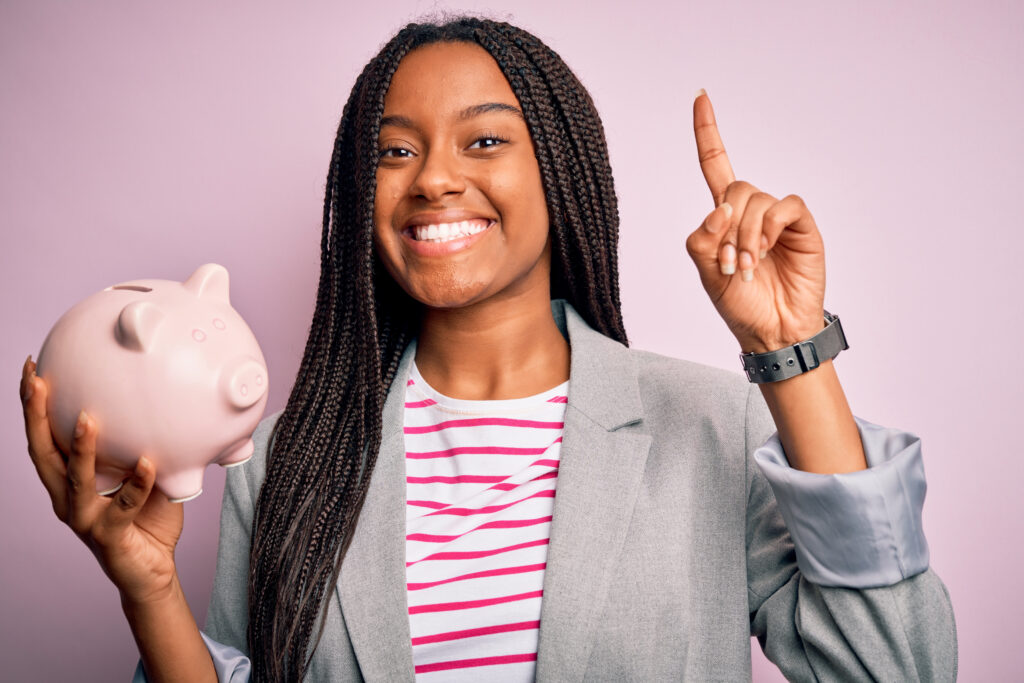Why financial knowledge—and the confidence to use it—matters more than ever
What does it take to become financially confident as a teenager? For the young women participating in the Enterprising Women Foundation’s Young Enterprising Women (YEW) Program, the answer includes hands-on experience, practical knowledge, and an understanding of how our brains really make financial decisions.
The YEW program equips high school girls across the country with essential financial tools, introducing them to real-world concepts like budgeting, saving, investing, and credit through a lens that combines experiential learning with insights from behavioral science. It’s not just about what students know—it’s about how they feel using that knowledge.
And it’s working.
The Gender Gap in Financial Literacy
Studies consistently show that women, on average, score lower than men on financial literacy tests—even when controlling for education and income. This disparity often starts young and persists into adulthood, contributing to long-term gaps in wealth and financial security. One set of benchmark questions—known as the “Big Three” of financial literacy (on interest, inflation, and risk diversification)—is frequently used to assess financial knowledge worldwide.
The good news? After completing the YEW financial literacy program, students showed significant improvement on all three questions. Even more encouraging, they retained those gains three months later.
Confidence Is Key
But the results go deeper than knowledge alone. One of the most important—and often overlooked—predictors of future financial wellbeing is confidence. Students in the YEW program not only learned more about money—they reported feeling more confident in their ability to make smart financial decisions.
This confidence doesn’t come from lectures or memorizing definitions. It comes from doing: from testing out saving strategies, setting goals, exploring investments, and understanding trade-offs. It comes from building new habits that make good financial decisions easier and more automatic over time.
The Behavioral Side of Money

Of course, knowing what to do and actually doing it are two very different things. As we often say, “just knowing the right thing to do doesn’t mean you’ll do the right thing.” This holds true in all areas of wellbeing—whether it’s exercising regularly, getting enough sleep, or staying on budget.
That’s why knowledge is essential—but not enough on its own. Real change also requires support, practice, and strategies that make good decisions easier in the moment. Behavioral economics helps explain this “knowledge–action gap.” It shows why people sometimes overspend, under-save, or put off investing, even when they understand the consequences.
The YEW program weaves in lessons from psychology and decision science to help students recognize the cognitive biases and mental shortcuts (heuristics) that can derail even the best financial plans. Understanding why we sometimes behave irrationally helps us anticipate—and overcome—those challenges in the future.
Impact Snapshot
During the 2024–2025 school year, the YEW program reached over 2200 high school girls across 23 cities in the U.S. Some highlights from the latest round of data collection include:
- Students significantly improved their scores on each of the “Big Three” financial literacy questions (above 95%) and reported significantly higher perceived literacy after the program ( from 5-7 on a 10-pt scale)
- 70% reported increased confidence in their knowledge of financial concepts, their ability to make good financial decisions, and their ability to save for their future
- Financial literacy gains on both objective and subjective measures were maintained three months after completing the program
Students described the experience as “empowering,” “eye-opening,” and “exactly what we need to learn before graduating.”
Join Us in Empowering the Next Generation
If you’re a teacher, school administrator, or program partner interested in bringing the YEW program to your students, we’d love to hear from you.
And if you’re a business owner, entrepreneur, philanthropist, or nonprofit leader who believes in building a financially confident next generation, we invite you to support this work through sponsorship or donation. Your contribution helps us expand our reach, deliver impactful programming, and inspire more young women to take control of their financial futures.
- Contact us here to learn how to get involved. You can also donate or become a program sponsor to invest in the financial futures of high school girls across the country.
- Learn more about the Enterprising Women Foundation.



